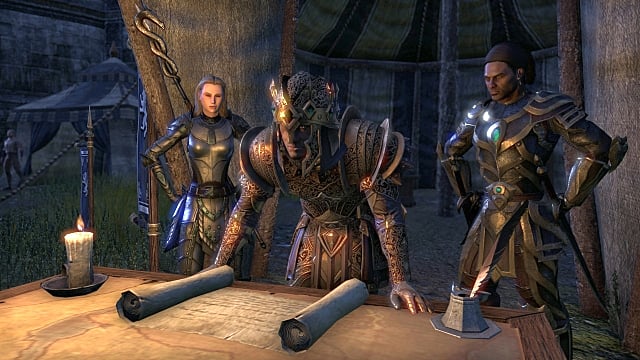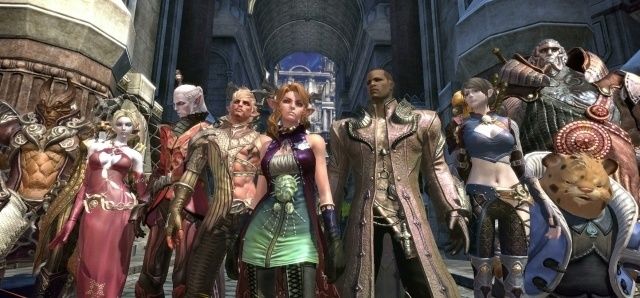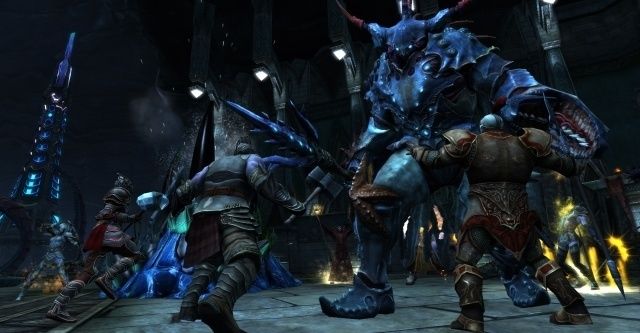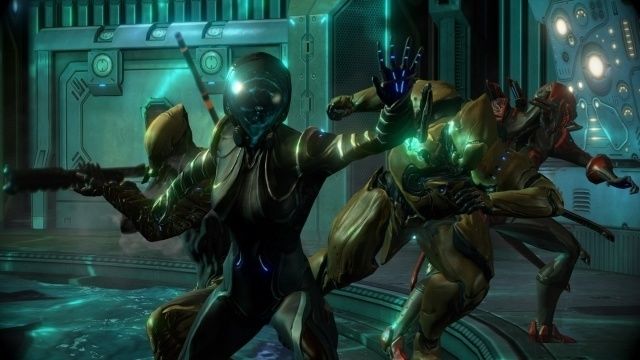I’m going to be honest with you, folks - I am pretty sure that meetings are where progress goes to die.
On the one hand, I don’t think this comes as a shock to anyone. In my years of running, occupying, and observing guilds, I’ve never seen a single person who seems to be excited by the prospect of a meeting. Not for work, and certainly not for a hobby. The problem is that we don’t necessarily get a choice, because when you get a large enough volume of gamers in a single space you’re going to get some degree of bickering anyway, and you need some method to make sure everyone’s on the same page.
On the other hand, if we’re accepting this as a necessary evil (emphasis ever so slightly on the “evil”), we can at least make these meetings as non-terrible as possible. It’s not as easy to lay on the table as when you have events that can be built from the ground up to be a fun time, but you can make your meeting not be a horror show.
Let’s start with a pretty basic element. All that stuff I said a couple of weeks ago for making fun events? Pretty much all of it still applies. Have a start time you actually stick to, make sure that you have a specific focus, and keep things relaxed. Making it about you is a bit less relevant, but the principle remains solid.
But there’s more to consider, because a guild meeting has business-based obligations that don’t show up anywhere else. The meeting isn’t just a chance for people to get together and have a laugh, it’s a time when you have items you need to bring to the table and discuss with everyone. Which brings me to an obvious point: you need to be clear on what sort of meeting this is.
Most groups I’ve been a part of have two distinct “types” of meeting. There’s the regular status update, which is mostly officers letting the members know what’s going on, what’s going well, and so forth. Then there are the discussion-based events, with everyone chatting about some guild-wide decision or another. The two types of meeting are horrible to mash together.
At a glance, they seem like the same fundamental focus, but the former is mostly a newsletter issued in a format that people will actually read. (I lump myself in with the group of people who would miss this if it was not in-game, as most newsletters just get automatically dumped into my trash folder anyway.) That means you have a different agenda and a different pace for the meeting compared to opening the floor for discussion.
Don’t try to lump these things together. If you’re having a strictly informational meeting, clamp down on chatter while it’s going on and focus on just getting the information out there. If there are questions after the fact, you can usually answer those after the fact with minimal issue. On the flip side, let your discussion gatherings be about encouraging discussion and making decisions as a whole.
A related point, of course, is whether or not you need to have a meeting at all. A clan of seven people probably doesn’t need to have regular meetings to discuss your next collective move, and I think most people ostensibly leading that group know it. But even in large groups, there are often times when you don’t really need a meeting.
Case in point: if your World of Warcraft guild is humming along with a good case of “business as usual,” you probably don’t need to have an actual meeting. It might be nice to get everyone in one place, but you don’t need to have a meeting just because you haven’t had one on a given month. It doesn’t accomplish much other than eating up everyone’s time.
No, a meeting is something to only be called when there’s something important to discuss or something wothwhile to share. Possibly welcoming new recruits. Something significant, in other words.
Let’s assume that yes, you do in fact need to have a meeting for whatever reason. Now we’re into the actual meat of the topic, past the question of whether it’s even worthwhile. You start promptly on time, and you outline what needs to be said as quickly as possible. That’s all good. How do things still get tedious?
If the meeting format is more open to discussion, part of the problem can be creating an unintentionally endless debate. I know people out there who can debate back and forth over the color of a guild insignia for hours; if you’re going to be discussing things, you need to serve chiefly as a moderator, and that means declaring at certain points that the discussion needs to move on. Not with bitterness, not necessarily even with a decision being made, but you will have to step in, clap your hands, and say that the current topic is closed off.
More informational meetings can still get bogged down and boring, though, and there are two big culprits. The first is that your group is large. Very large. You’re a big enough guild to really have separate groups taking on PvP and PvE content at different tiers, for example, or your clan is focused on a few different competitive formats or games at the same time.
Here, things get bogged down because the meeting is revolving around groups that may as well not be overlapping. Ideally, when things get this big, you’ll split matters into multiple meetings; stuff that concerns one group but doesn’t concern others will be handled separately, while you can cover overarching topics only at group meetings. Failing that, you can at least structure the meeting to have a progression with the most general interest topics first and more niche topics following later on.
Non-large groups can still run into problems of boredom, though, if the meetings are too focused on individuals. Even when you’re streamlining the meeting down to the absolute basics, if the meeting primarily exists to say nice things about Todd rather than anyone else, everyone who is not Todd is going to be a bit tired of it in short order. Meetings are poor places to lavish praise on a member, even if that member is a big factor in making the group work.
In short? You want these meetings to be quick, punchy, and very focused on one or two things before they have a chance to lose focus.
This runs counter to a lot of the accepted wisdom I’ve seen, that guild meetings should be big affairs covering a whole range of topics. The problem with this philosophy is that it leads to a meeding in which far too many of the attendees are bored, and/or not paying very close attention to what’s going on. It sends the message that meetings are to be avoided if at all possible rather than attented for the short time that they last.
People who are in your group should want to be at the meetings. By making sure that they have a reason to exist and focus on information over dawdling, they can remain what they should be - reliable methods for distributing information guild-wide.



